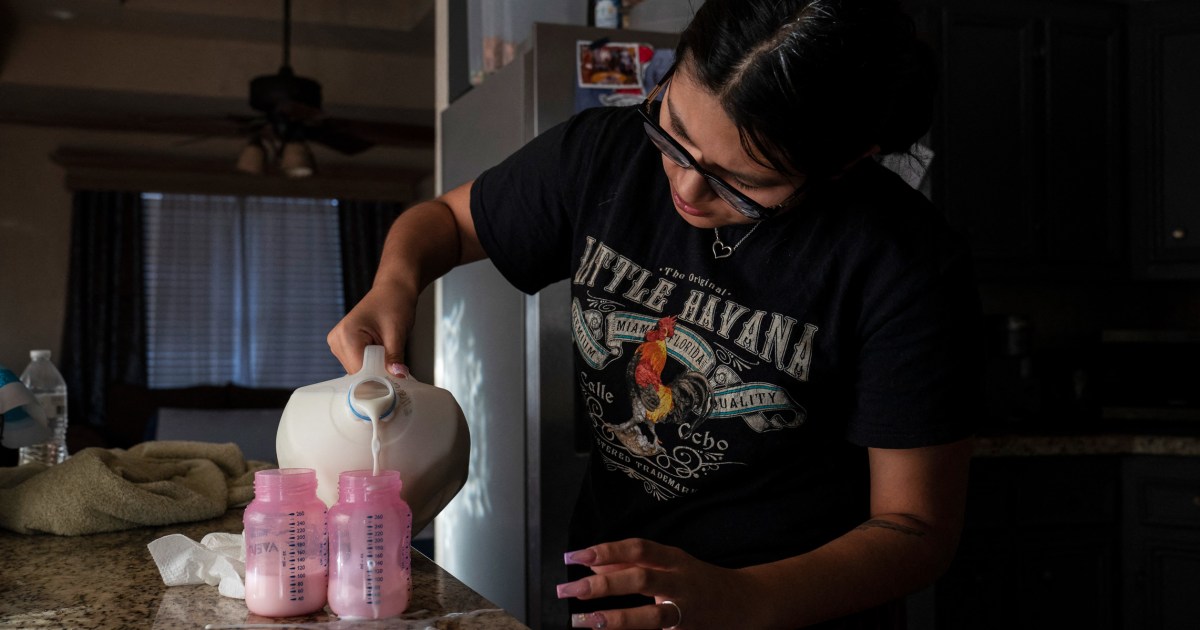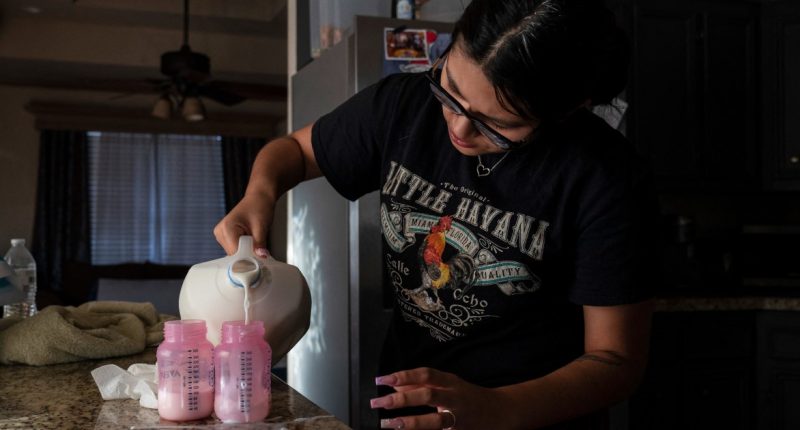
The fertility rate for teens in Texas rose for the first time in 15 years in 2022, a shift driven by disproportionately high rates seen among Hispanic teens in the year after a six-week state abortion ban took effect, according to a University of Houston study.
Latinas of all ages also experienced the biggest increase in births and fertility rates compared to other racial or ethnic group in the state from 2021 to 2022, according to the study released last week by University of Houston’s Institute for Research on Women, Gender & Sexuality.
Texas women delivered 16,147 more babies in 2022 than in 2021. Of those, 13,503 babies, or 84%, were delivered by Latinas, according to the study.
Additionally, the average fertility rate — the number of children born per 1,000 women — rose 5.1% among Latinas, compared to falling .2% for non-Hispanic white women and .6% for Black women. Among Latinas 25 and older, fertility rates rose 8%.
The state’s overall fertility rate rose for the first time since 2014, by 2%.
Texas’ teen birth rate increased slightly overall, while the U.S. teen birth rate continued to remain steady. Hispanic, Asian and Black teens all saw varying increases in their birth rates, while non-Hispanic whites continued to see declines.
Among Texas’ Hispanic teens, the rate rose 1.2%, or an increase from 27.22 to 27.56 births per 1,000. But for non-Hispanic white teens, the fertility rate fell 5%, from 11.71 births to 11.13 births per 1,000. The fertility rates for Black teens rose by .5% or 22.29 to 22.41. For Asian teens, birth rates rose by 8.2%, a larger ratio because of smaller numbers, 1.42 births to 1.58 births per 1,000.
The study states that the numbers suggest that while other racial and ethnic groups of women may have been affected by the state’s abortion ban, Hispanic women faced more challenges in getting reproductive care, including abortions.
“We don’t see any other reason,” said Elizabeth Gregory, director of the institute.
In 2021, Texas enacted a ban on abortion after six weeks of pregnancy, a period of time in which many women do not know they are pregnant. Since then, after the U.S. Supreme Court overturned the landmark Roe v. Wade decision, Texas instituted a near total ban.
Given the study’s findings, policymakers “should start thinking about the real-life effects of policy decisions,” Gregory said.
“Travel to access abortion in other states requires money, time off work and in many cases childcare. The need to care for children already at home might be a key factor in the rising birth rates among women 25 and older,” Gregory said.
Latinos, who outnumber non-Hispanic white people in Texas, are the group least likely to have health insurance in the state, which leads the country in uninsured residents.
Lupe M. Rodríguez, executive director of the National Latina Institute for Reproductive Justice, said the numbers in the study confirm what her organization has been seeing on the ground since Texas’ near abortion ban went into effect.
“Unfortunately this new report is not surprising,” Rodríguez said. “Folks are entirely disconnected from any kind of reproductive health care, including abortion.”
Latinos in Texas have endured longstanding inequality in access to health and reproductive care, even before the abortion ban. This has led to poor health outcomes for children and mothers and will continue for years to come, she said.
For more from NBC Latino, sign up for our weekly newsletter.
Source: | This article originally belongs to Nbcnews.com










